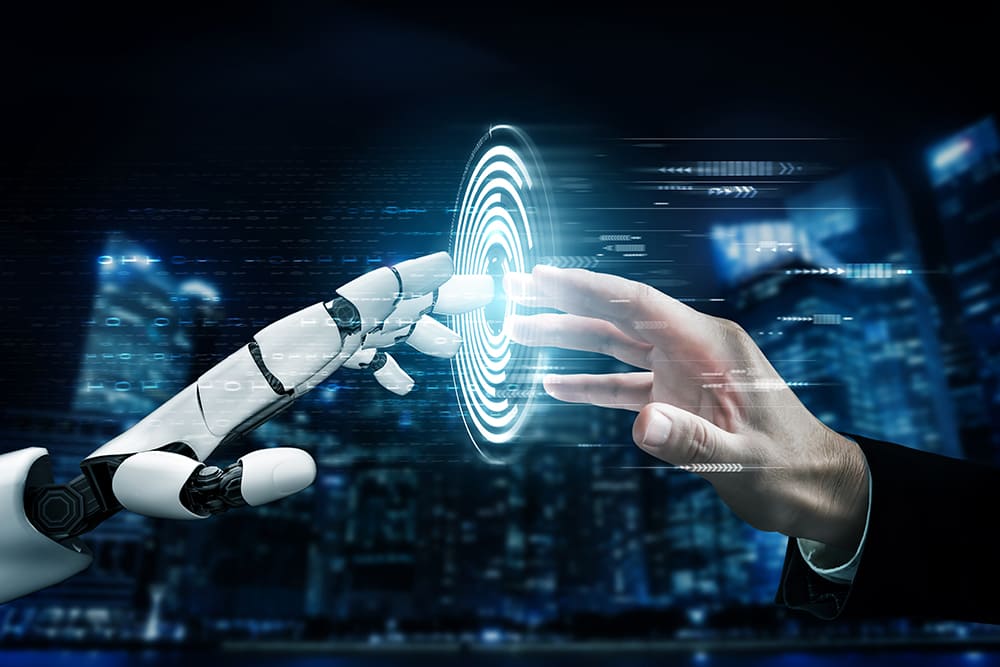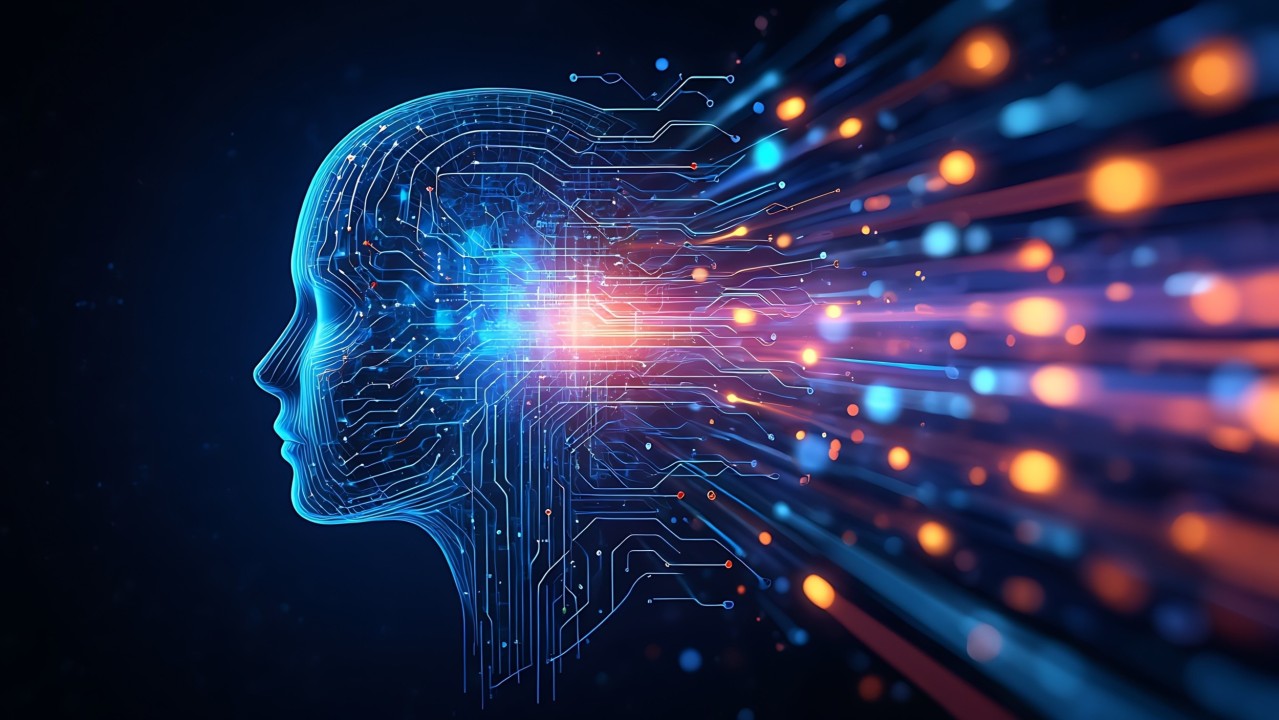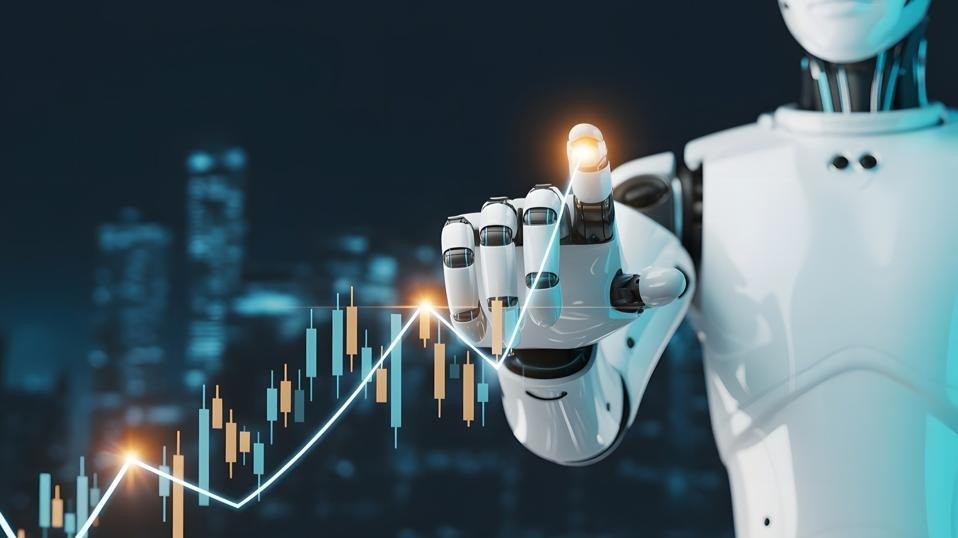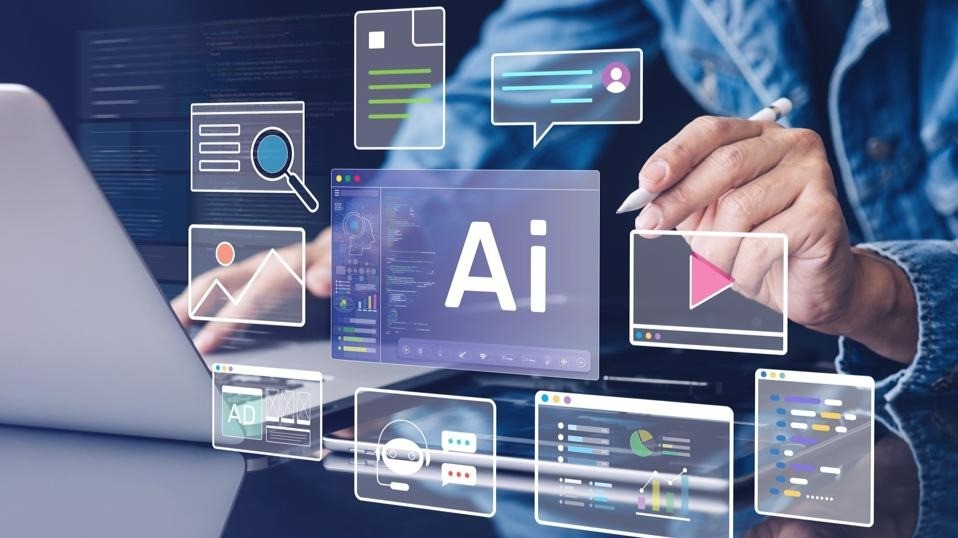3 Ways That Artificial Intelligence (AI) Will Change Your Job Forever
24 January 2022
Artificial Intelligence – smart machines able to “learn” how to carry out tasks and become increasingly good at them – is everywhere in work today, and will only be more ubiquitous tomorrow.

In fact Google’s CEO Sundar Pichai recently predicted that it will turn out to be the most profound human invention so far – more so that electricity, the internet, or even fire!
Certainly, I believe it has the potential to deeply impact everything about the way we live our lives, from how we travel, to how we connect and communicate with friends, and most definitely the way we work and do business.
Whatever job you do now, if it isn’t affected by AI already, it’s very likely that it will be at some point in the not-so-distant future. Here’s my rundown of the five most significant changes AI will make to the world of work in our lifetimes.
AI probably won’t make you redundant – yet!
It’s certainly true that machine learning – the AI technology that’s most relevant to business today – will be able to do some things so much more quickly and efficiently that it won’t be worthwhile to pay humans to do them anymore. This will include things like sensing, moving things around, scheduling, translating, and optimizing machinery. But the jury is still out over whether, in the long or short term, AI will lead to more jobs being lost or created.
One way to look at it is that AI, in theory, will lead to increased business growth and success. Often this will mean (hopefully) more customers. More customers mean more human problems that need to be solved – from complicated customer service issues requiring a human response to the challenge of consistently creating innovative products and services that meet the changing needs of humans. These are tasks that humans will be needed for, for a long time yet!
The arrival of AI is described today as the dawn of the "fourth industrial revolution." The first industrial revolution saw political opposition and public unrest from people who feared that agricultural and manufacturing machinery would cause widespread unemployment and even the collapse of society. That fear is still alive today. On the other hand, others believe that technology will lead us into an era that has been described as “fully automated luxury communism," where robots provide all our basic necessities at effectively no cost to us. Human beings are then free to spend their time on fulfilling and creative pursuits that give their lives value and meaning.
Both ideas present extreme outcomes, and we’re probably a long way yet from either. What is clear is that AI has the potential to relieve many of us of a lot of the mundane and repetitive elements of our work, so the best way to make sure we don’t become redundant is to work in jobs where our value is elsewhere!
Smart machines will augment and assist us
When we're carrying out those more human, creative, or strategic tasks that won't be automated any time soon, we can expect robots and smart machines to be there to lend a hand. Often this will mean having analytics-capable tools on-hand to make sure our decisions are underpinned by solid data. For example, HR roles will, for a long time yet, still require a human touch to solve human-specific problems. But increasingly, AI is used in recruitment to provide initial screening of the thousands of applications that many large companies attract whenever they advertise a vacancy. You might not be happy to hand over the entire responsibility of picking who will work for you to a machine, but it can greatly improve efficiency by providing early indications of who might be the most suitable applicants.
Those kinds of tasks are carried out by AI software running on machines such as PCs and tablets that we’re all used to, but we will increasingly find ourselves “working alongside” machines in a very literal sense, too. Collaborative robots (Cobots) work on the floor with humans in Amazon’s worldwide network of warehouses as well as facilities such as Ericsson’s 5G smart factory, where assembly, packing, and dispatch of its devices is carried out autonomously by machines while security drones patrol the premises to deter intruders. Online supermarket Ocado uses robots to pick and pack 50,000 customer orders per hour, navigating miles of shelves across football-pitch-sized warehouses.
Our ability and willingness to get along with our new robot colleagues is likely to play a big part in determining how successful we are in the world of work in the near future. For businesses, the challenge will be to make sure humans and robots are both spending their time on the jobs they are best at.
AI will create new types of jobs
Once again, the impact of earlier industrial revolutions is a good source of predictions on how this one might turn out. Certainly, plowmen, weavers, and smiths lost their jobs during the widespread adoption of mechanization in the early 19th century. But as the first mechanized industries emerged, populations became urbanized, and quality of life improved for many people. This led to business and human enterprise evolving to provide services needed to keep everything running and to keep people fed, happy, and entertained.
The same will undoubtedly be true of the AI revolution. Business and society are going through a period of adjustment as we come to understand the power of smart machines and automation, and the human skills needed to lead the way on this are in high demand. More roles are likely to appear involving the ability to identify areas where AI and automation resources will be most effective, for example. Another very valuable human skill right now is the ability to create “buy-in” – effectively developing trust among human workforces and bosses towards AI and smart machines because trust is essential for AI to work!
The key thing to remember here is that any job that can easily be automated is likely to be! Businesses need to ensure that their own workforce is in-tune with this forecasted future and equipped with the “human” skills that aren’t likely to be automated any time soon. These include emotional intelligence (empathy), creativity (AI can write songs but is unlikely to come up with anything that we will consider great music any time soon), and complex decision-making.
One way to think about the impact it will have, is to consider how the invention of "non-smart" machines (anything that can't be considered to be "artificially intelligent") impacted industry and commerce from the first industrial revolution to the dawn of the AI era, around ten years ago. During this time, machines took on much of the heavy lifting of our manual workload. Now we have "smart" machines; increasingly, they will take on the burden of managing our cerebral workload too – anything that requires thought, learning, or decision making!
Related Articles
Why The AI Supercycle Will Fail Without Advanced Networks
By now, “smart” versions exist of just about every home appliance, gadget and gizmos we can think of. However, manufacturers continue[...]
The Two-Tier AI Economy: Why Half Of Companies Are Being Left Behind And How To Close The Gap
By now, “smart” versions exist of just about every home appliance, gadget and gizmos we can think of. However, manufacturers continue[...]
5 AI-Era Skills Mistakes That Will Cost Your Business Millions In 2026
By now, “smart” versions exist of just about every home appliance, gadget and gizmos we can think of. However, manufacturers continue[...]
5 ESG Trends That Will Shape Business in 2026
By now, “smart” versions exist of just about every home appliance, gadget and gizmos we can think of. However, manufacturers continue[...]
The 5 Robotics Trends In 2026 You Must Get Ready For Now
By now, “smart” versions exist of just about every home appliance, gadget and gizmos we can think of. However, manufacturers continue[...]
10 Generative AI Trends In 2026 That Will Transform Work And Life
By now, “smart” versions exist of just about every home appliance, gadget and gizmos we can think of. However, manufacturers continue[...]
Sign up to Stay in Touch!
Bernard Marr is a world-renowned futurist, influencer and thought leader in the fields of business and technology, with a passion for using technology for the good of humanity.
He is a best-selling author of over 20 books, writes a regular column for Forbes and advises and coaches many of the world’s best-known organisations.
He has a combined following of 4 million people across his social media channels and newsletters and was ranked by LinkedIn as one of the top 5 business influencers in the world.
Bernard’s latest book is ‘Generative AI in Practice’.










Social Media